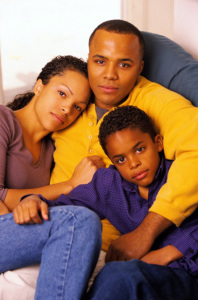‘Far from being a mere lifestyle choice, marriage is of vital benefit to all members of society, including those who are not married or never married.’ Australian-born UK barrister, James Bogle, was passionate in his defence of the institution of marriage in his keynote address at the National Marriage Day breakfast, held in Canberra on August 13, 2009. His words were stirring and delivered in a very accessible way, and yet nothing he said was new. Family, the traditional married mum and dad and their children are integral to the stability, economic prosperity and survival of our society, indeed the future of the world.
Dr Helen Alvare, a family lawyer and professor at Harvard Law School recounted, at the World Meeting of Families in Mexico City in January 2009, many instances in her own professional career where she had seen the breakdown and dysfunction of the traditional family unit and the consequences of such dissolution. She explained that cohabitating couples are less stable than married couples and more likely to result in the couple splitting up, a consequence backed up by the Breakthrough Britain report on family breakdown. European data suggested that by a child’s fifth birthday 43% of cohabitating couples had split up, whilst just 8% of married couples had called it quits.
But the breakdown of the relationship of the parents is only part of the story. In fact, it is the consequences of such breakdowns that are more than alarming. For instance single families are more likely to suffer poverty, instability and lack acceptable role models of both sexes for children of the original union. 70% of juvenile offenders in Britain are from single parent homes and an astonishing one-third of those in prison had been looked after by local social welfare authorities.
This high level of crime activity is also attributed to the absence of a male authority figure (father) in the home. Abuse, of both children and women, is more likely to occur in cohabitating or single parent homes as the game of ‘musical partners’ is undertaken.
Single or cohabitating mothers are more likely to suffer from depression. Divorce reduces the likelihood of children succeeding in education and occupation and perhaps more importantly, in their own romantic relationships and marriages.
Marriage, on the other hand, increases the likelihood of good parental relationships with children and good role models of both sexes. The life expectancy of spouses is longer and the children thrive physically, and emotionally.
Marriage increases the likelihood that children will succeed academically and in their chosen careers. They are more likely to have healthy marriages and relationships themselves. Married couples tend to be better off financially than cohabitating or single parent families. Far from being just a piece of paper, marriage is a necessary good for the stability of our society, across the board. The traditional family is integral to the future of our society.
Family breakdown costs the British exchequer well over £20 billion annually. In fact, one speaker at the World Meeting of Families went so far as to claim that the global financial crisis we found ourselves in was evidence, and in fact caused by, the disintegration of the traditional family structure in society. And perhaps when you consider the legal fees, and social welfare payments and structures necessary to deal with family breakdowns, his claim was not so far from the mark. The statistics and hard evidence is here for all to see. From the nations represented at the World Meeting of Families, to the National Marriage Day in Canberra, none of this information is new, but it is high time that we faced facts. The traditional institution of the family is vital to our society.
Perhaps Mr Justice Paul Coleridge, a judge in the family division of the High Court in England and Wales, put it best when he said that ‘our children are the losers in the national game of ‘pass the partner’’. ‘There is no quick fix solution,’ he said on the topic of changing the current relationship and family climate, ‘although the reaffirmation of marriage as the gold standard would be a start: statistically, it has proved to be the most enduring relationship, and the best environment for children.’ (The Telegraph, UK, June 17, 2009)
Originally posted 2015-02-10 22:20:35.

